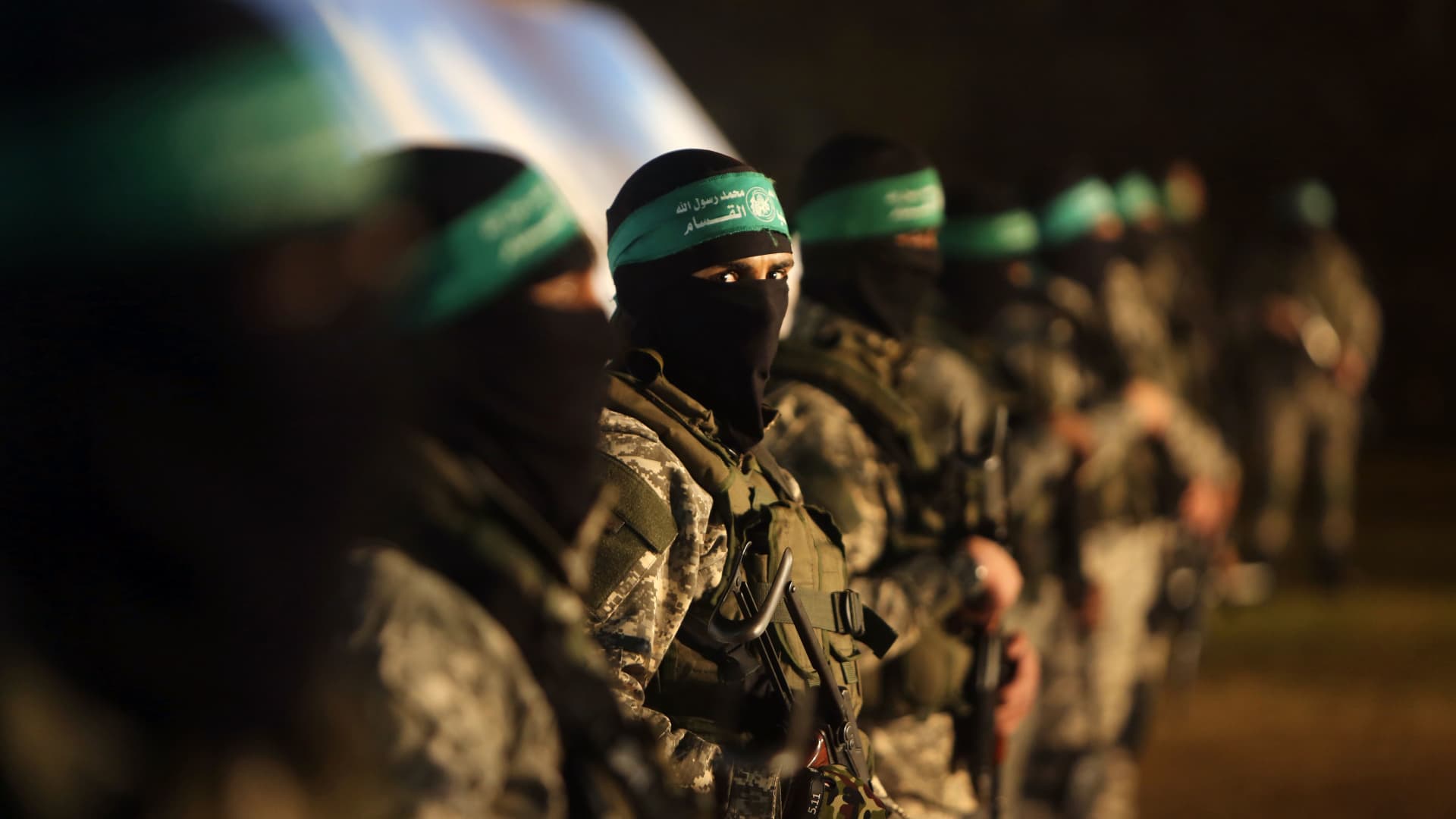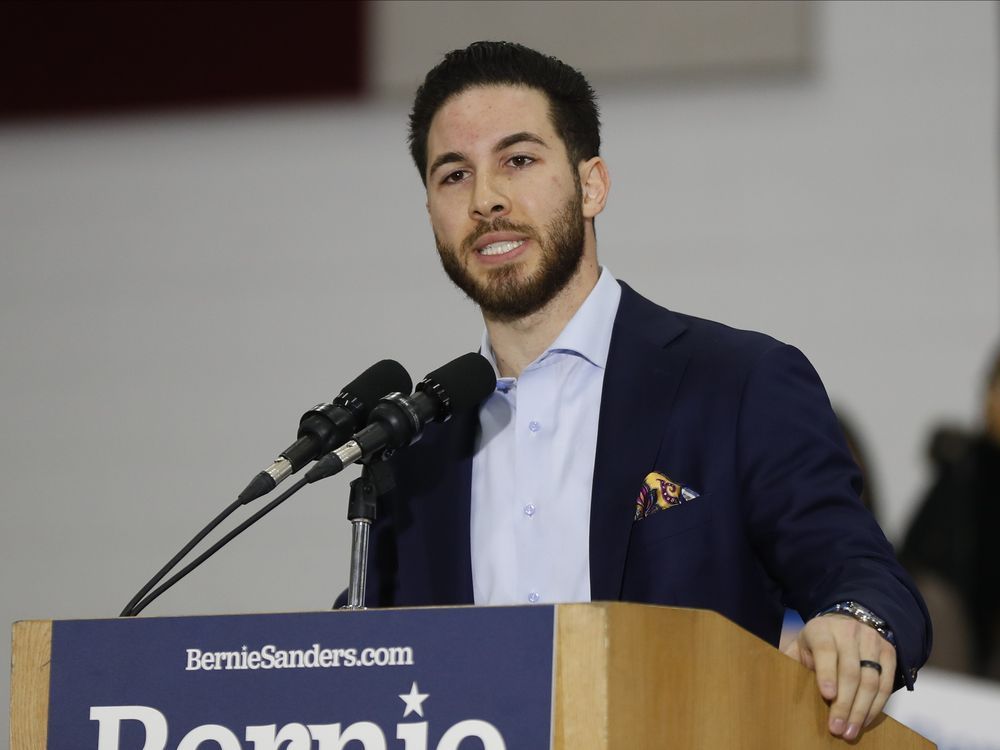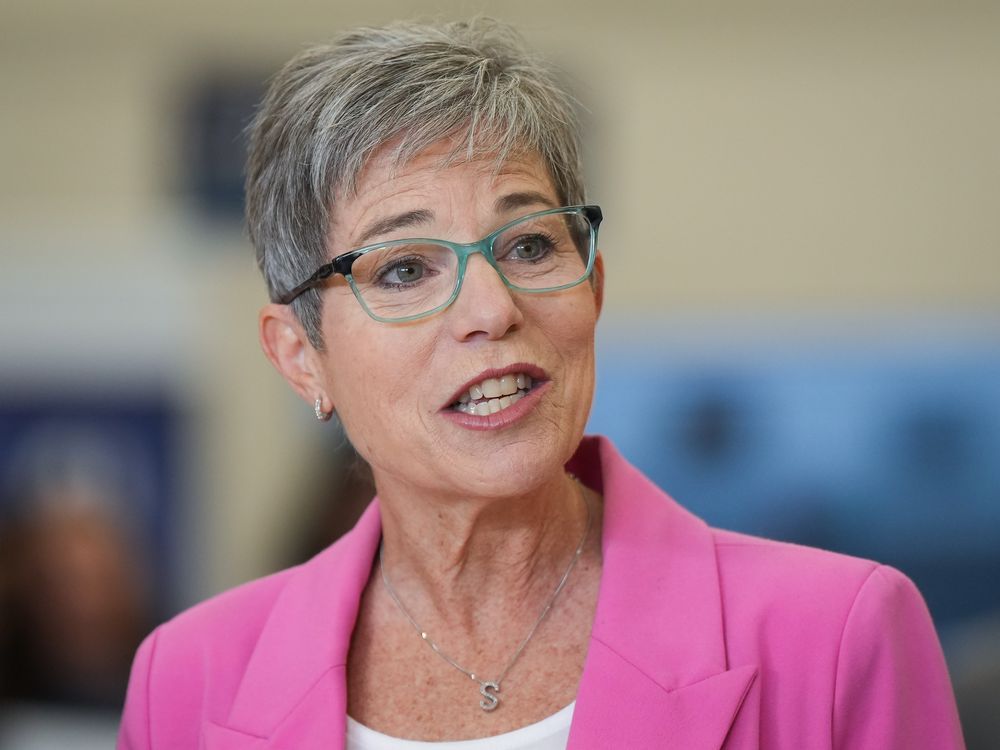KFAR AZA, Israel — They were childhood sweethearts. They’d been together since they were 16, when they met in high school, in Ashdod. On Oct. 7, 2023, they were murdered here in this old-style kibbutz, built more than 70 years ago in a grove of eucalyptus and tamarisk trees.
There is nothing exceptional about the story of Sivan Elkabets and Naor Hasidim. It’s just one heartbreaking story about two horrible deaths among 1,139 merciless and unspeakably cruel murders in a complex, meticulously planned and cunningly executed terror operation that has changed the world.
What happened on Oct. 7, four months ago this week, was the bloodiest single day in Jewish history since the Holocaust, and by far the worst act of terrorism in Israeli history.
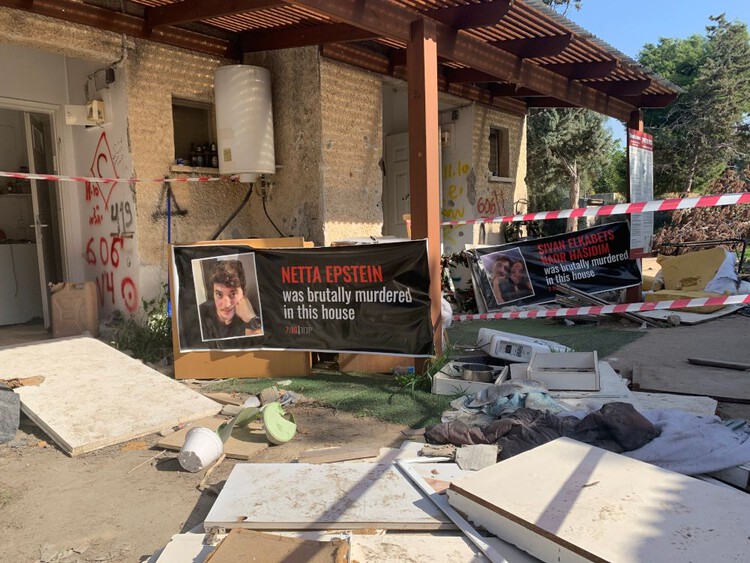
 apple.news
Israel's chief military spokesperson Rear Admiral Daniel Hagari said on Tuesday that 31 of the remaining hostages held in Gaza were pronounced dead.
apple.news
Israel's chief military spokesperson Rear Admiral Daniel Hagari said on Tuesday that 31 of the remaining hostages held in Gaza were pronounced dead.
"We have informed 31 families that their captured loved ones are no longer among the living and that we have pronounced them dead," he told a regular media briefing.
Israel has said 136 hostages are still being held in Gaza.
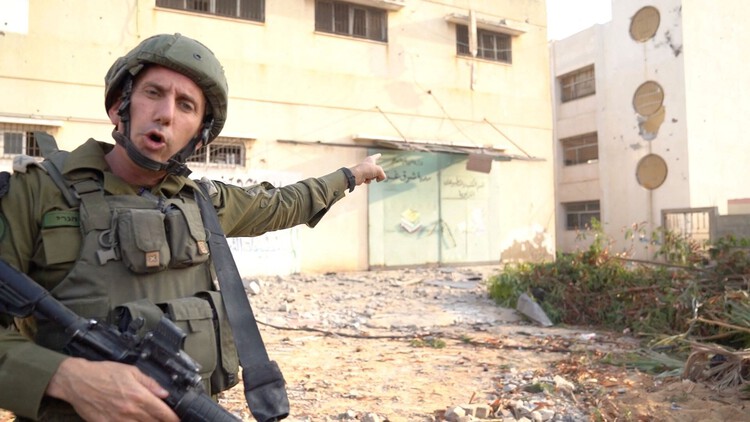
 apple.news
Israel began its military offensive in Gaza after militants from Hamas-ruled Gaza killed 1,200 people and took 253 hostages in southern Israel on Oct. 7.
apple.news
Israel began its military offensive in Gaza after militants from Hamas-ruled Gaza killed 1,200 people and took 253 hostages in southern Israel on Oct. 7.
Saudi Arabia put U.S.-backed plans to normalise ties with Israel on ice, sources familiar with Riyadh's thinking told Reuters in Oct, 2023, as the war between Palestinian militant group Hamas and Israeli forces escalated.
Saudi Arabia has told the U.S. its position stands that there will be no diplomatic relations with Israel unless an independent Palestinian state is recognised on the 1967 borders with East Jerusalem, and Israeli "aggression" on the Gaza Strip stops, the Saudi foreign ministry said in a statement on Wednesday.

 apple.news
….& why 1967 borders with East Jerusalem?
apple.news
….& why 1967 borders with East Jerusalem?
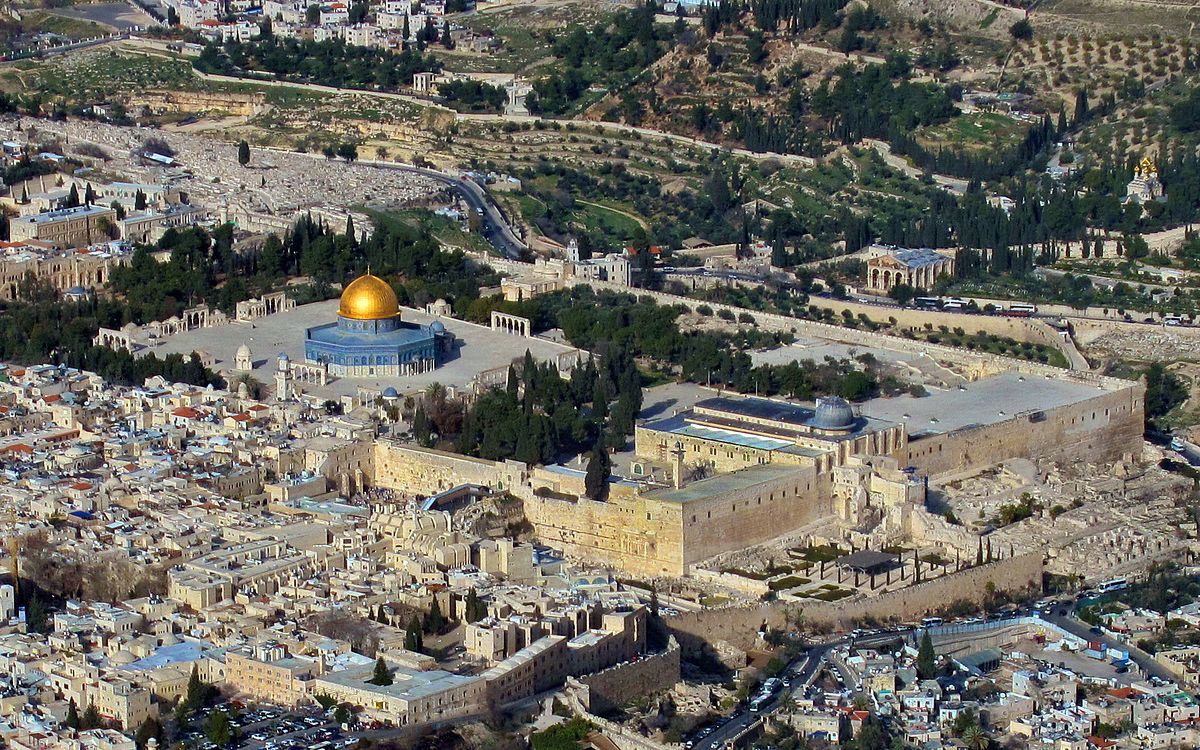
 en.wikipedia.org
Egyptian security sources told Reuters on Tuesday that Hamas' response showed “flexibility”, asking for a specific timeline for the ceasefire to end after the Muslim Eid al-Fitr holiday in early April. That would be appropriate, for Muslims, seeing as this war started on the Israeli holiday of Simchat Torah with the Hamas/Palestinian attack.
en.wikipedia.org
Egyptian security sources told Reuters on Tuesday that Hamas' response showed “flexibility”, asking for a specific timeline for the ceasefire to end after the Muslim Eid al-Fitr holiday in early April. That would be appropriate, for Muslims, seeing as this war started on the Israeli holiday of Simchat Torah with the Hamas/Palestinian attack.

 en.wikipedia.org
en.wikipedia.org
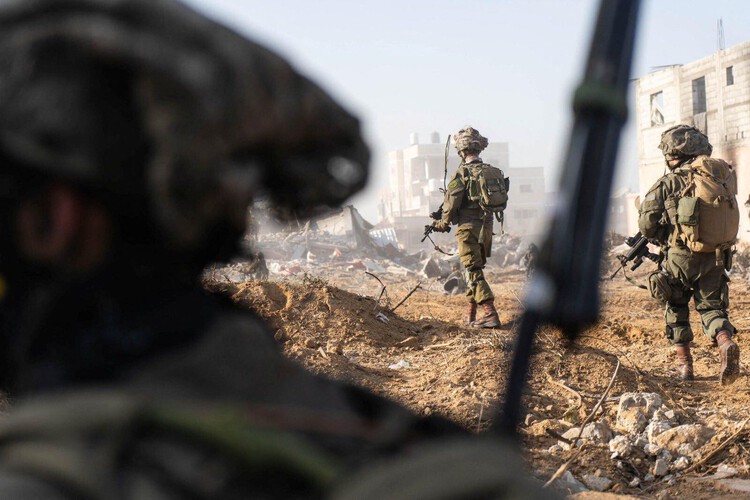
 apple.news
A ceasefire deal in Gaza is seen by the US as the most realistic way to reduce tensions further afield.
apple.news
A ceasefire deal in Gaza is seen by the US as the most realistic way to reduce tensions further afield.
On Tuesday, Israel confirmed that 31 of the 136 remaining hostages in Gaza had been killed. During a week-long ceasefire in late November, 105 Israeli and foreign hostages were freed in exchange for 240 Palestinians held in Israeli jails.
The proposal was sent to Hamas around a week ago but a representative told the Reuters news agency it had taken them until Tuesday to respond because parts of it were "unclear and ambiguous."
Qatari Prime Minister Sheikh Mohammed Bin Abdulrahman al Thani has described Hamas's response as "positive" in general.
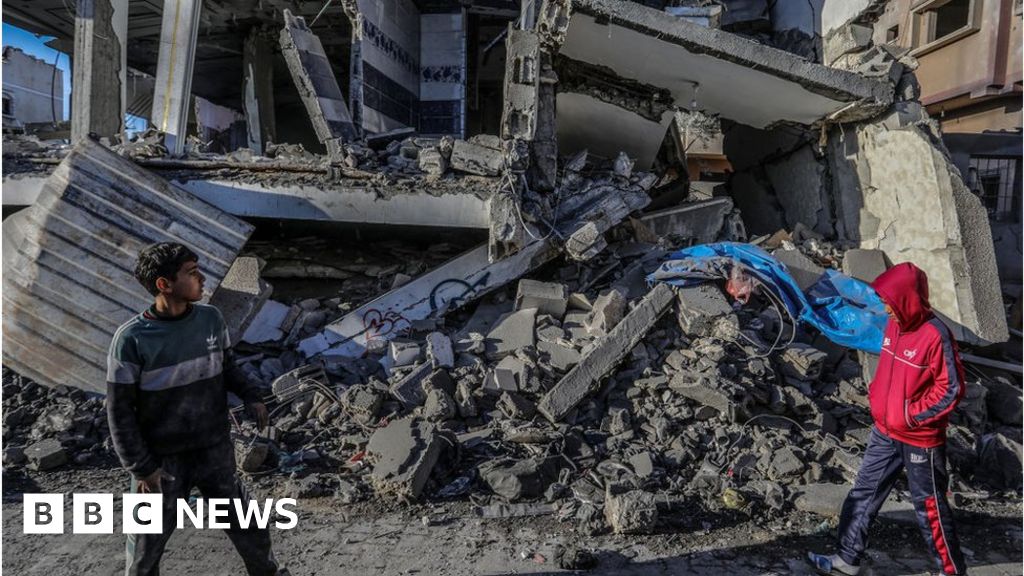
 www.bbc.com
A top priority for Israel and the U.S. is releasing the remaining women hostages who were supposed to get out in November but were not freed as Hamas had promised.
www.bbc.com
A top priority for Israel and the U.S. is releasing the remaining women hostages who were supposed to get out in November but were not freed as Hamas had promised.
Many of them were victims of sexual assault and other abuses, according to eyewitness testimony and other evidence Israel has been able to collect over the last two months, according to a diplomatic source.
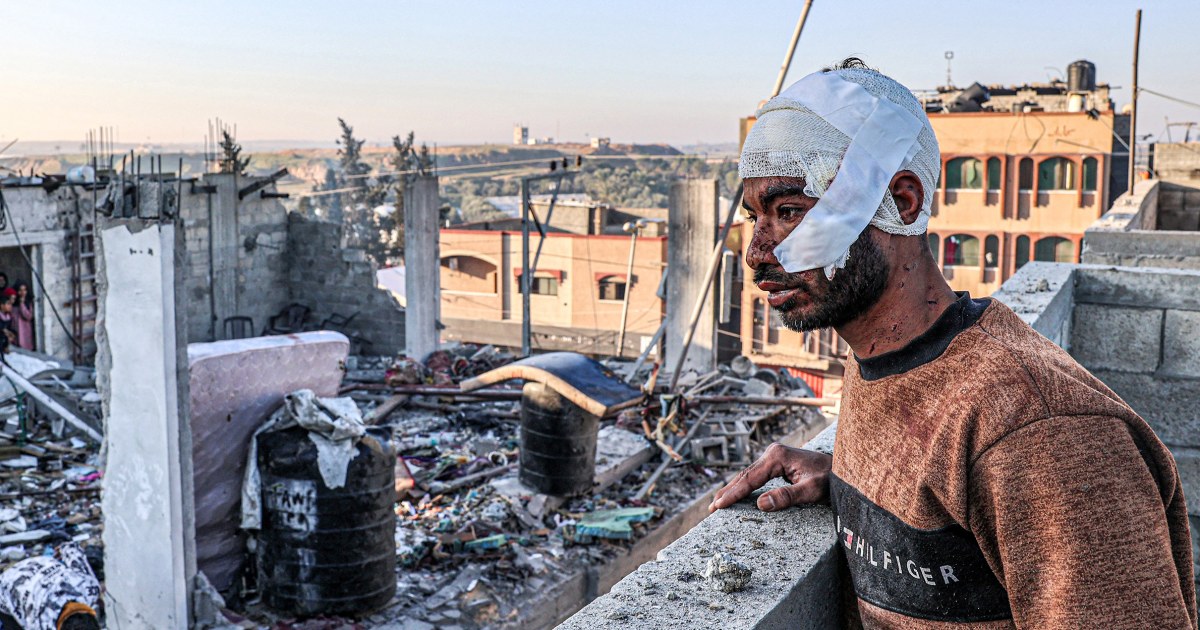
 www.nbcnews.com
Hamas responded to the latest Gaza cease-fire plan Tuesday, drawing reactions that termed its reply anywhere from "generally positive'' to "a little over the top,'' reflecting the complicated nature of the negotiations.
www.nbcnews.com
Hamas responded to the latest Gaza cease-fire plan Tuesday, drawing reactions that termed its reply anywhere from "generally positive'' to "a little over the top,'' reflecting the complicated nature of the negotiations.
The militant group said it still seeks “a comprehensive and complete” cease-fire to end “the aggression against our people.” Hamas is also expected to demand the release of a “large” number of Palestinian prisoners, including high-profile militants, in exchange for the remaining surviving hostages.
Qatari Prime Minister Sheikh Mohammed bin Abdulrahman Al Thani, who has been a key mediator in the efforts to end Israel's war against Hamas in Gaza, said he was "optimistic" and noted that the Palestinian group's response to the blueprint had included some comments but "in general it is positive."
Hamas’ proposal would effectively leave the militant group in power in Gaza and allow it to rebuild its military capabilities, a scenario that Israel adamantly rejects.
In the first 45-day phase, Hamas would release all remaining women and children, as well as older men and those who are ill, in exchange for the release of all the women, children, sick and older prisoners held by Israel. Israel would release an additional 1,500 Palestinian prisoners, including 500 specified by Hamas – likely high-profile militants serving life sentences.
Israel would withdraw its forces from population centers, halt aerial operations and allow in far more humanitarian aid and the start of reconstruction. It would also allow displaced people to return to their homes, including in northern Gaza, and open all crossings.
In the second phase, which would be negotiated during the first, Hamas would release the remaining hostages, mainly soldiers and civilian men, in exchange for more prisoners, and Israel would complete its withdrawal from Gaza. The two sides would exchange the remains of deceased hostages and prisoners in a third stage, which would give way to a long-term truce.
A Hamas official and two Egyptian officials confirmed the authenticity of the document published by Lebanon’s Al-Akhbar newspaper on condition of anonymity because they were not authorized to brief media on the sensitive negotiations. The newspaper is close to Lebanon’s Hezbollah militant group, an ally of Hamas.

 toronto.citynews.ca
toronto.citynews.ca
There is nothing exceptional about the story of Sivan Elkabets and Naor Hasidim. It’s just one heartbreaking story about two horrible deaths among 1,139 merciless and unspeakably cruel murders in a complex, meticulously planned and cunningly executed terror operation that has changed the world.
What happened on Oct. 7, four months ago this week, was the bloodiest single day in Jewish history since the Holocaust, and by far the worst act of terrorism in Israeli history.
Terry Glavin: I went to the heart of Hamas horror — National Post
How the Oct. 7 massacre shattered Israeli society
"We have informed 31 families that their captured loved ones are no longer among the living and that we have pronounced them dead," he told a regular media briefing.
Israel has said 136 hostages are still being held in Gaza.
Israel's chief military spokesperson: 31 hostages in Gaza are dead — Reuters
Israel's chief military spokesperson Rear Admiral Daniel Hagari said on Tuesday that 31 of the remaining hostages held in Gaza were pronounced dead.
Saudi Arabia put U.S.-backed plans to normalise ties with Israel on ice, sources familiar with Riyadh's thinking told Reuters in Oct, 2023, as the war between Palestinian militant group Hamas and Israeli forces escalated.
Saudi Arabia has told the U.S. its position stands that there will be no diplomatic relations with Israel unless an independent Palestinian state is recognised on the 1967 borders with East Jerusalem, and Israeli "aggression" on the Gaza Strip stops, the Saudi foreign ministry said in a statement on Wednesday.
Saudi Arabia: no Israel ties without recognition of Palestinian state — Reuters
Saudi Arabia has told the United States it will not open diplomatic relations with Israel unless an independent Palestinian state is recognised on 1967 borders with East Jerusalem as its capital, its foreign ministry said on Wednesday.

Israeli annexation of East Jerusalem - Wikipedia

Simchat Torah - Wikipedia
Egypt receives Hamas response to Gaza truce proposal, working to reach final formula — Reuters
Egyptian officials said on Tuesday they have received Hamas' response to a framework ceasefire agreement for the Gaza Strip, a statement from Egypt's State Information Service said.
On Tuesday, Israel confirmed that 31 of the 136 remaining hostages in Gaza had been killed. During a week-long ceasefire in late November, 105 Israeli and foreign hostages were freed in exchange for 240 Palestinians held in Israeli jails.
The proposal was sent to Hamas around a week ago but a representative told the Reuters news agency it had taken them until Tuesday to respond because parts of it were "unclear and ambiguous."
Qatari Prime Minister Sheikh Mohammed Bin Abdulrahman al Thani has described Hamas's response as "positive" in general.

Israel-Gaza war: Hamas responds to proposed Gaza ceasefire plan
Israel and the US say they are reviewing the response, which Qatar has described as "positive".
Many of them were victims of sexual assault and other abuses, according to eyewitness testimony and other evidence Israel has been able to collect over the last two months, according to a diplomatic source.

Hamas responds to cease-fire proposal; U.S. kills militant in Baghdad drone strike
Blinken meets with Israeli leaders, Hamas responds to cease-fire proposal, Houthis attack cargo ship, Saudi Arabia calls for independent Palestinian state.
The militant group said it still seeks “a comprehensive and complete” cease-fire to end “the aggression against our people.” Hamas is also expected to demand the release of a “large” number of Palestinian prisoners, including high-profile militants, in exchange for the remaining surviving hostages.
Qatari Prime Minister Sheikh Mohammed bin Abdulrahman Al Thani, who has been a key mediator in the efforts to end Israel's war against Hamas in Gaza, said he was "optimistic" and noted that the Palestinian group's response to the blueprint had included some comments but "in general it is positive."
Hamas’ proposal would effectively leave the militant group in power in Gaza and allow it to rebuild its military capabilities, a scenario that Israel adamantly rejects.
In the first 45-day phase, Hamas would release all remaining women and children, as well as older men and those who are ill, in exchange for the release of all the women, children, sick and older prisoners held by Israel. Israel would release an additional 1,500 Palestinian prisoners, including 500 specified by Hamas – likely high-profile militants serving life sentences.
Israel would withdraw its forces from population centers, halt aerial operations and allow in far more humanitarian aid and the start of reconstruction. It would also allow displaced people to return to their homes, including in northern Gaza, and open all crossings.
In the second phase, which would be negotiated during the first, Hamas would release the remaining hostages, mainly soldiers and civilian men, in exchange for more prisoners, and Israel would complete its withdrawal from Gaza. The two sides would exchange the remains of deceased hostages and prisoners in a third stage, which would give way to a long-term truce.
A Hamas official and two Egyptian officials confirmed the authenticity of the document published by Lebanon’s Al-Akhbar newspaper on condition of anonymity because they were not authorized to brief media on the sensitive negotiations. The newspaper is close to Lebanon’s Hezbollah militant group, an ally of Hamas.

Live updates | Netanyahu rejects Hamas truce plan after his meeting with top US diplomat
Israeli Prime Minister Benjamin Netanyahu has rejected a plan put forward by Hamas for a multi-stage truce and hostage release, which would have effectively left the Palestinian militant group in power. Netanyahu made the comments Wednesday shortly after meeting the visiting U.S. secretary of...
